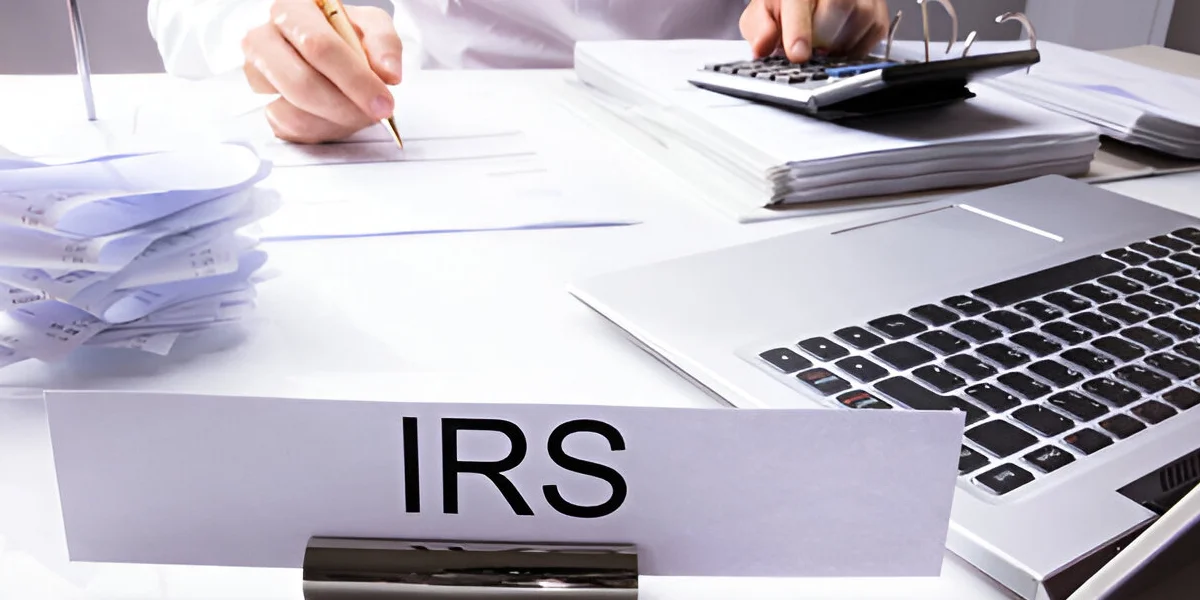Can I Use a Personal Loan to Pay My Taxes?
A personal loan functions as an acceptable method for tax debt payment. A personal loan becomes your rescue when you need to immediately pay your taxes to prevent facing IRS penalties along with interest charges.
Should I Use a Personal Loan to Pay My Taxes?
Carefully examine your financial position before going ahead with a personal loan application. A personal loan provides fast debt payment services against IRS bills though you must pay added interest that can elevate your total payments. Examine IRS payment plan options alongside the available personal loans to decide which solution works best for you.
How Much Do I Owe?
Your first goal should be to understand your tax debts precisely. Review your IRS balance either through your IRS account login or tax return examination. The precise debt amount allows you to select appropriate financing methods.
What’s My Credit Score?
Your personal loan eligibility depends on the assessment of your credit score performed by lenders. Better credit scores enable approval for reduced interest rates whereas poor credit scores might lead to increased borrowing expenses and possible denial of financing options.
Can I Afford the Monthly Payments?
After calculating your monthly payment amounts make sure they match your financial budget. Your credit score will suffer damage from missing payments on a personal loan while also delivering added financial complications.
What Happens If I Don’t File My Taxes on Time?
Failure to File
Not filing your taxes by the deadline will trigger IRS penalties amounting to 5% of tax debt per month you are late with a maximum limit of 25%.
Additional Late Penalty
Your debts will grow over time because of interest charges when you do not file taxes and make payments according to deadline.
What Happens If I Only Pay Part of My Taxes?
Failure to Pay
A financial penalty of 0.5% applies to non-payments each month according to the Internal Revenue Service. Interest builds up regularly across daily periods thus increasing costs whenever tax payment delays become longer.
Failure to Pay and Failure to File
When both penalties kick in simultaneously the total debt burden becomes tougher to tackle. You will avoid extra expenses by either brining the full tax amount to IRS or by using personal loans for financing payments.
Benefits of Using a Personal Loan
Loan Term
Personal loans present a scheduled repayment schedule which runs between one year and five years to provide consistent monthly payment amounts.
Loan Amount
The loan amount you receive will be sufficient to pay your entire tax debt thus stopping the IRS from levying additional penalties.
Fees
It’s vital for borrowers to examine loan fees and prepayment penalties within the terms to select the best offer from lenders.
Unemployment Protection Programs
The protection programs from selected lenders enable borrowers to postpone their payments temporarily during periods of unemployment.
What to Watch Out For?
Interest Rates
Personal loans assign specific interest rates based both on your individual credit score evaluation along with the financing institution. High rates of interest will cause loans to become expensive to pay off.
Hidden Costs
Background costs included in loans might extend to origination fees together with late payment fees which lenders sometimes bill separately. Examine all fine details before you sign any agreement.
Affordability
Reviews should show that your payments correspond with budgetary limits to protect your credit rating from potential damage.
Where Can I Get a Personal Loan?
Banks together with credit unions and digital lenders are sources where you can acquire personal loans. The selection process should include rate and term comparison for you to identify the right option that suits your financial requirements.
 How to Get a Personal Loan to Pay Tax Debt?
How to Get a Personal Loan to Pay Tax Debt?
- A better credit score among other things leads to better rates during personal loan applications.
- Look at banks, credit unions, and online lenders.
- The needed documentation for the loan application includes income verification.
- The loan proceeds go straight to your bank account as soon as the application passes approval standards.
- Use your obtained loan sum to pay off your tax debt to the IRS.
How to Qualify for a Personal Loan to Pay Off Tax Debt?
- Be at least 18 years old
- Have good credit
- Maintain a low debt-to-income (DTI) ratio
- Provide proof of income
- Have an active bank account
- Receive direct deposit payments
- Be a S. citizen or permanent resident
Alternative Repayment Options
Credit Card
The use of a credit card applies for smaller tax payments. Most personal loans charge rates at levels that exceed those of credit card interest rates.
IRS Installment Plan
The IRS enables taxpayers to use payment plans that let them distribute their taxes in timelier segments with more favorable interest and penalty rates when compared to traditional borrowing.
Offer in Compromise
You can obtain reduced tax debt payments from the IRS through demonstrating proof of financial difficulty.
Secured Personal Loan
A secured loan secured through collateral such as savings accounts or vehicles can obtain payment at reduced interest rates.
Home Equity Financing
Using a home equity loan or HELOC to pay tax debt exposes your home to loss as failure to repay results in risking your home.
Bottom Line
Personal loans work as a suitable method to eliminate tax debt if you select affordable options that meet your needs. Thoroughly analyze both advantages and possible drawbacks before obtaining any financial agreement.
Frequently Asked Questions
Is an IRS Payment Plan a Good Idea?
An IRS payment plan serves as a structured payment method which lets taxpayers settle their debt with reduced penalties compared to traditional credit funding.
Can I Use a Personal Loan to Pay Off a Tax Lien?
The process of using personal loans to pay off tax liens depends on passing creditworthiness and income criteria.
Can I Make Early Repayments on My Personal Loan?
Early payments are typically allowed by lenders though always review their policies regarding prepayment fees beforehand.
Are There Fees Associated with an IRS Installment Agreement?
Taxpayers who create IRS installment plans must pay setup fees while the balance still accumulates interest charges.
Are Personal Loans to Pay Off Taxes Tax Deductible?
You cannot deduct personal loan interest from taxes unless you secure the loan by qualified property like a house.
When you know your available alternatives you will make the right choice to deal effectively with your tax debt.

 How to Get a Personal Loan to Pay Tax Debt?
How to Get a Personal Loan to Pay Tax Debt?